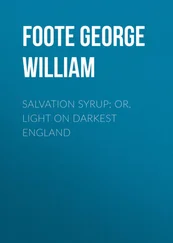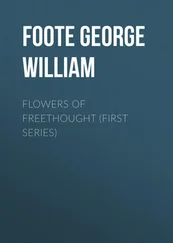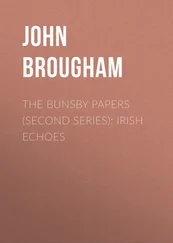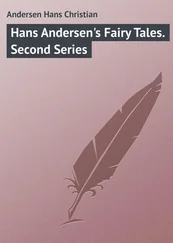George Foote - Flowers of Freethought (Second Series)
Здесь есть возможность читать онлайн «George Foote - Flowers of Freethought (Second Series)» — ознакомительный отрывок электронной книги совершенно бесплатно, а после прочтения отрывка купить полную версию. В некоторых случаях можно слушать аудио, скачать через торрент в формате fb2 и присутствует краткое содержание. Жанр: foreign_antique, foreign_prose, на английском языке. Описание произведения, (предисловие) а так же отзывы посетителей доступны на портале библиотеки ЛибКат.
- Название:Flowers of Freethought (Second Series)
- Автор:
- Жанр:
- Год:неизвестен
- ISBN:нет данных
- Рейтинг книги:5 / 5. Голосов: 1
-
Избранное:Добавить в избранное
- Отзывы:
-
Ваша оценка:
- 100
- 1
- 2
- 3
- 4
- 5
Flowers of Freethought (Second Series): краткое содержание, описание и аннотация
Предлагаем к чтению аннотацию, описание, краткое содержание или предисловие (зависит от того, что написал сам автор книги «Flowers of Freethought (Second Series)»). Если вы не нашли необходимую информацию о книге — напишите в комментариях, мы постараемся отыскать её.
Flowers of Freethought (Second Series) — читать онлайн ознакомительный отрывок
Ниже представлен текст книги, разбитый по страницам. Система сохранения места последней прочитанной страницы, позволяет с удобством читать онлайн бесплатно книгу «Flowers of Freethought (Second Series)», без необходимости каждый раз заново искать на чём Вы остановились. Поставьте закладку, и сможете в любой момент перейти на страницу, на которой закончили чтение.
Интервал:
Закладка:
"There is a God! There is a Divine principle. There is more in life than we wot of, but vastly more in death! Oh! for a thousand tongues to declare the truths which are now fast dawning upon my bewildered mind! Death, the great leveller, need have no more terrors for us, for it has been conquered by the Great Spirit, in giving us a never-ending life in the glorious spheres of immortal bliss. O my friends! may I be permitted to declare, more fully and fervently, the joys which fill my mind. Language fails, no tongue can describe."
Our own impression is that Professor Huxley was justified in saying that Spiritualism adds a new terror to death. Fancy the awful depth of flaccid imbecility into which Charles Bradlaugh must have fallen, to indulge in "ohs," and gasp out "glorious," "glorious," and talk of his "subdued" and "bewildered" mind, and bid himself be "a man." It was not thus that he spoke in the flesh. His language was manly, firm, and restrained; his attitude was bold and self-reliant. After four months in the "spirit world" he is positively trembling and drivelling! It is enough to make the rugged Iconoclast turn in his grave. Messrs. Gray and Reedman may rely upon it that Charles Bradlaugh is not able to enter No. 139 Pershore-road, Birmingham; if he were, he would descend in swift wrath upon his silly traducers, who have put their own inanity into his mouth, making the great, virile Atheist talk like a little, flabby Spiritualist after an orgie of ginger-beer.
Anyone may see at a glance that the style of this message, from beginning to end, is not Charles Brad-laugh's. Whose style it is we cannot say. We do not pretend to fathom the arcana of Spiritualism. It may be Mr. Reedmam's, it may be another's. If it be Mr. Reedman's, he must have been guilty of fraud or the victim of deception. Three distinct hypotheses are possible. Either someone else produced or concocted the message while he was in a foolish trance, or he wrote it himself consciously, or he had been thinking of Charles Bradlaugh before falling into the foolish trance and the message was due to unconscious cerebration.
We forbear to analyse this wretched stuff, though we might show its intrinsic absurdity and self-contradiction. One monstrous piece of folly bestrides the rest like a colossus – "Your humble friend Charles Bradlaugh." Shade of Uriah Heep! Charles Bradlaugh the " humble friend" of the illustrious Gray and Reedman! Think of it, Lord Halsbury; think of it, Lord Randolph Churchill. The giant who fought you, and beat you, in the law courts and in Parliament; the man whose face was a challenge; the man who had the pride, without the malignity, of Lucifer; this very man crawls into a Birmingham house, uninvited and unexpected, and announces himself as the " humble friend" of some pudding-headed people, engaged in a fatuous occupation that makes one blush for one's species.
Surely if Charles Bradlaugh's ghost is knocking about this planet, having a mission to undo the work of his lifetime in the flesh, it should begin the task in London. It was at the Hall of Science that Charles Bradlaugh achieved his greatest triumphs as a public teacher, and it is there that he should first attempt to undo his work, to unteach his teaching, to disabuse the minds of his dupes. Of course we shall be told that he must communicate through "mediums," and that the medium must be "controlled" by Charles Bradlaugh's spirit; but to this we reply that Charles Bradlaugh controlled men easily while he was "in the flesh," and it is inconceivable that he has lost that old power if he still survives.
On the whole, we think the Spiritist trick is worse than the malignity of orthodox Christians. A lie about a man's death-bed ends there, and consigning him to hell for his infidelity is only a pious wish that cannot affect his fate. But getting hold of a man's ghost ("spirit" they call it) after his death; making it turn up at public and private sittings of obscure fools; setting it jabbering all the flatulent nonsense of its manipulators; and using it in this manner until it has to be dismissed for a newer, more fashionable, and more profitable shadow; all this is so hideous and revolting that the ordinary Christian lies about infidels seem almost a compliment in comparison.
This Gray-Reedman story is probably the beginning of a long and wretched business. The Philistines are upon thee, Charles Bradlaugh! They will harness thee in their mill, and make thee grind their grist; and fools that were not worth a moment of thy time while thou livedst will command thee by the hour; and Sludge the Medium will use thy great name to puff his obscene vanity and swell his obscener gains. This is the worst of all thy trials, for thou canst not defend thyself; and, in thy helplessness, fools and pigmies cut capers over thy grave.
CHRIST AND BROTHERHOOD
Clergymen are supposed to be educated; that is, they go to college before taking holy orders, and study what are called "the classics" – the masterpieces of Greek and Roman literature. Theology is not enough to fit them for the pulpit. They must also be steeped in "the humanities," It is felt that they would never find all they require in the Bible. They find a great deal of it in Pagan writings, and as these are unknown to the people, it is safe for the clergy to work the best "heathen" ideas into their interpretation of the Christian Scriptures. There was a time, indeed, when Christian preachers were fond of references to Pagan poets and philosophers. The people were so ignorant, and such implicit believers, that it could be done with security. But now the case is altered. The people are beginning to "smell a rat." It dawns upon them that if so many fine things were said by those old Pagans – not to mention the still more ancient teaching of India and Egypt – Christianity can hardly merit such epithets as "unique" and "wonderful." Accordingly it is becoming the fashion in clerical circles to avoid those old Pagans, or else to damn them all in a sweeping condemnation. Some indeed go to the length of declaring – or at least of insinuating – that all the real truth and goodness there is in the world began with the Christian era. This extreme is affected by the Evangelical school, and is carried to its highest pitch of exaggeration by such shallow and reckless preachers as the Rev. Hugh Price Hughes. Soon after the Daily Chronicle correspondence on "Is Christianity Played Out?" this reverend gentleman, and most accomplished "perverter of the truth," screamed from the platform of St. James's Hall that women and children were regarded as slaves and nuisances before the time of Christ; which is either a deliberate falsehood, or a gross misreading both of history and of human nature. Mr. Hughes has since been gathering his energies for a bolder effort in the same direction. He now publishes in the Methodist Times his latest piece of recklessness or fatuity. It is a sermon on "The Solidarity of Mankind," and is really an exhibition of the solidity of Mr. Hughes's impudence. It required nothing but "face," as Corbett used to call it, to utter such monstrous nonsense in a sermon; it would need a great deal more courage than Mr. Hughes possesses to utter it on any platform where he could be answered and exposed.
Mr. Hughes believes in our "common humanity," and he traces it from "the grand old gardener" (Tennyson). "We are all descended from Adam," he says, "and related to one another." Now this is not true, even according to the Bible; for when Cain fled into the land of Nod he took a wife there, which clearly implies the existence of other people than the descendants of Adam. But this is not the worst. Fancy a man at this time of day – a burnin' an' a shinin' light to a' this place – gravely standing up and solemnly telling three thousand people, most of whom we suppose have been to school, that the legendary Adam of the book of Genesis was really the father of the whole human race!
Читать дальшеИнтервал:
Закладка:
Похожие книги на «Flowers of Freethought (Second Series)»
Представляем Вашему вниманию похожие книги на «Flowers of Freethought (Second Series)» списком для выбора. Мы отобрали схожую по названию и смыслу литературу в надежде предоставить читателям больше вариантов отыскать новые, интересные, ещё непрочитанные произведения.
Обсуждение, отзывы о книге «Flowers of Freethought (Second Series)» и просто собственные мнения читателей. Оставьте ваши комментарии, напишите, что Вы думаете о произведении, его смысле или главных героях. Укажите что конкретно понравилось, а что нет, и почему Вы так считаете.












